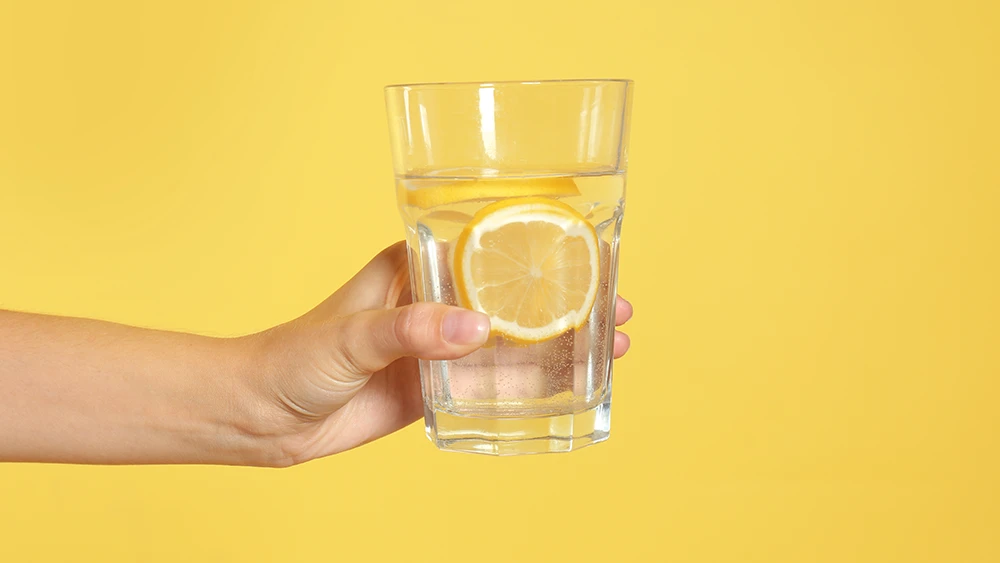Ever thought about what foods you SHOULD eat to promote better oral health? Or perhaps you just had a dental procedure, a tooth removed, or a dental implant placed and want to know what would help to optimize your healing. The following list will help you to optimize your dental health and recovery.
Vitamin D
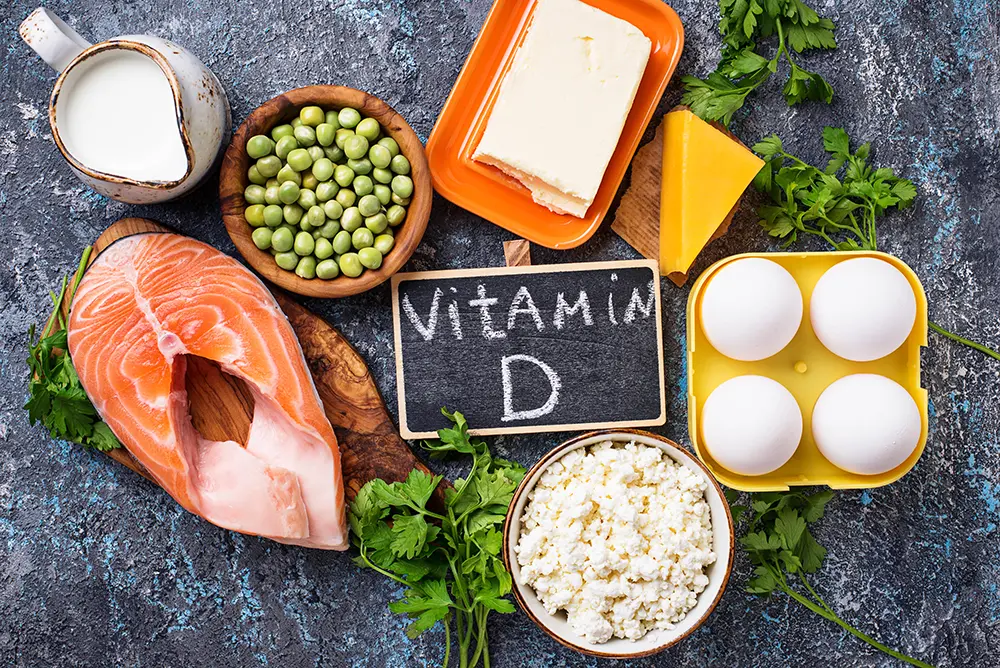
This vitamin is the powerhouse vitamin when it comes to healthy teeth and bones and unfortunately, Vitamin D remains to be a common deficiency among Singaporeans and other developed nations. Vitamin D is produced when the skin is exposed to UV (B) rays of the sun. Despite Singapore being a sunny island, it is estimated that between 40-60% of the population is deficient. Vitamin D aids in the absorption of calcium and phosphorus in the body. Vitamin D helps the intestine to absorb calcium from the food we eat. Calcium is a vital mineral necessary for building and maintaining strong bones and teeth.
Vitamin D also helps regulate the phosphorus levels in the body. Phosphorus works alongside calcium in the formation and maintenance of teeth and bones. It plays a role in the mineralization process contributing to the strength and structure of the teeth.
Adequate levels of vitamin D during the tooth development phase (which begins in utero) are associated with a lower risk of dental problems.
Furthermore, Vitamin D is very important in accelerating the wound healing process making it even more essential during and after invasive dental procedures.
Ensuring adequate sunshine and supplementing where necessary are valuable adjuncts.
Vitamin D rich foods include oily fish which includes salmon, mackerel, and sardines as well as egg yolks, red meat, and liver.
Vitamin C
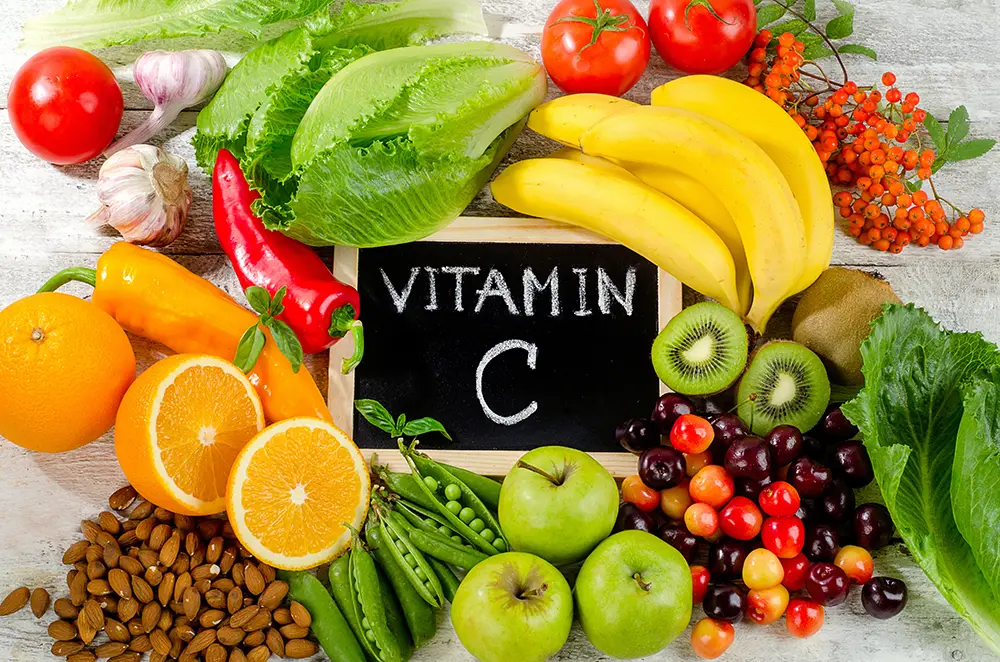
Vitamin C contributes to collagen synthesis. Collagen helps to maintain the strength and integrity of the teeth and gums. It plays a vital role in helping prevent gum disease by contributing to the body’s defense systems as well as promoting faster healing time. Vitamin C has antioxidant properties which help protect cells from damage caused by free radicals. In the gums this antioxidant activity helps reduce inflammation and supports the healing process, keeping the gums healthy and less prone to disease.
A vitamin C deficiency can lead to weakened gums making them more susceptible to bleeding, inflammation, and gum diseases such as gingivitis and periodontitis.
Vitamin C rich foods include citrus fruits, peppers, sweet potatoes, kale, broccoli, and berries.
Vitamin A
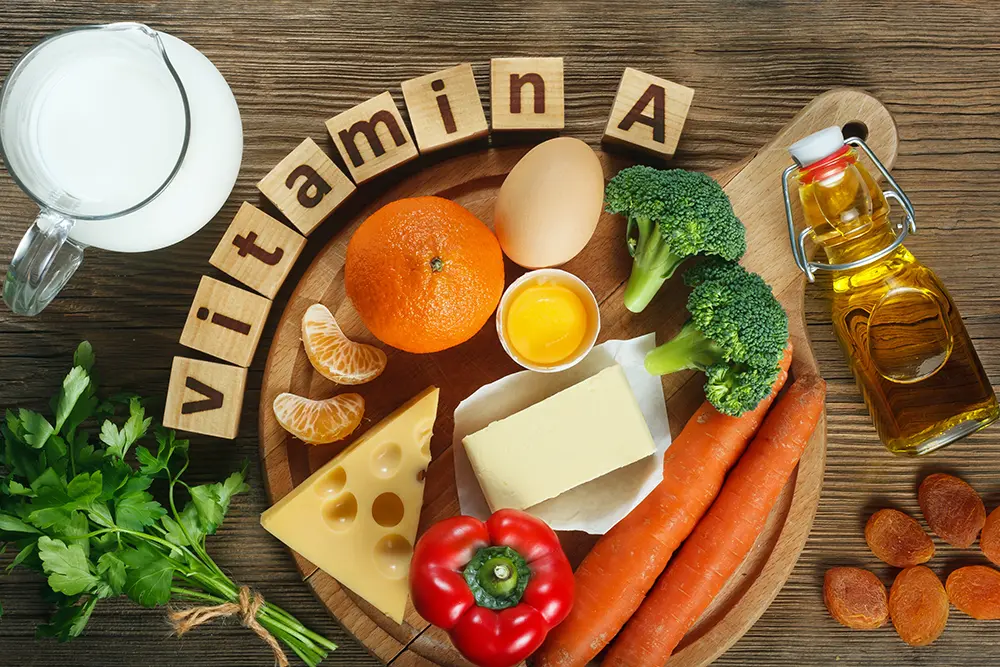
This vitamin is not only good for your eyes and skin but also good for your mouth, particularly for saliva production. Saliva acts as a buffer and helps to alkalise acids and maintain a more neutral pH. Staying hydrated further to support adequate saliva production.
Vitamin A rich foods: liver, fish, eggs, and dairy.
Magnesium
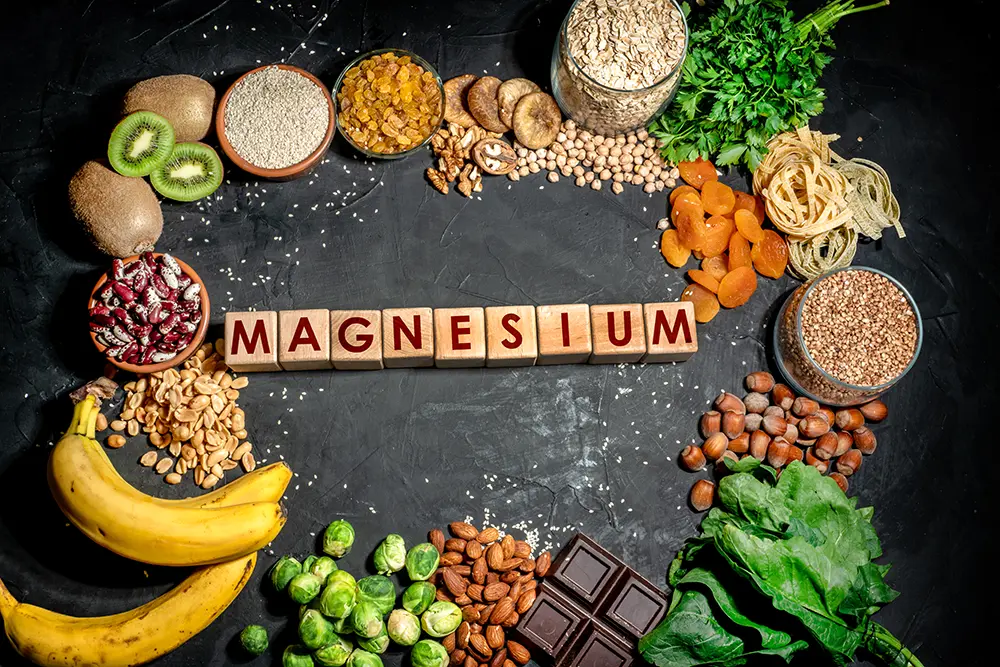
Inadequate levels of magnesium result in increased bleeding tendency, bone resorption, looseness, and premature loss of teeth. Taking calcium without magnesium can result in softer teeth which are less resistant to acids, causing tooth decay.
Foods rich in magnesium: Dark leafy greens, nuts, and seeds.
Zinc
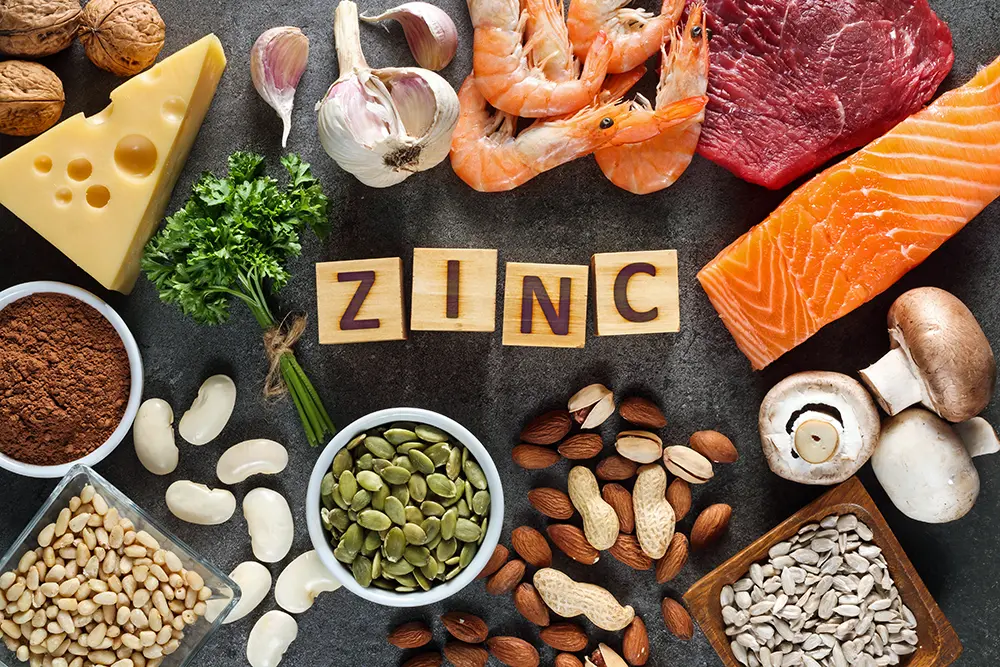
An adequate balance of zinc is essential in the maintenance of skeletal growth and function.
Zinc helps to determine the exact crystalline structure that your enamel develops. Low levels of zinc can be associated with an increased chance of developing infections.
In the oral cavity, zinc is found in the saliva and hydroxyapatite of the dental enamel. It contributes to healthy teeth formation. Studies have also shown that zinc can help to reduce halitosis in the mouth. Zinc is important for maintaining periodontal health because of its immunological effect on oral soft tissues.
Zinc-rich foods: Oysters, red meat, poultry, nuts, and whole grains.
Vitamin K2
Vitamin K2 is a lesser-known vitamin. Some studies report that most of today’s modern society is deficient in K2. Vitamin K helps to build new dentine, slows down tooth degradation, and leads to a more normal facial and jaw structure.
It has also been hypothesized that Vitamin K2 can help to remineralise teeth. Although there is yet more research to be done in this area, it is sufficient to say that Vitamin K has a supportive role in our dental health.
Foods rich in K2: Blue cheese, hard cheese like gouda, eggs, pork, chicken and natto.
Vitamin E
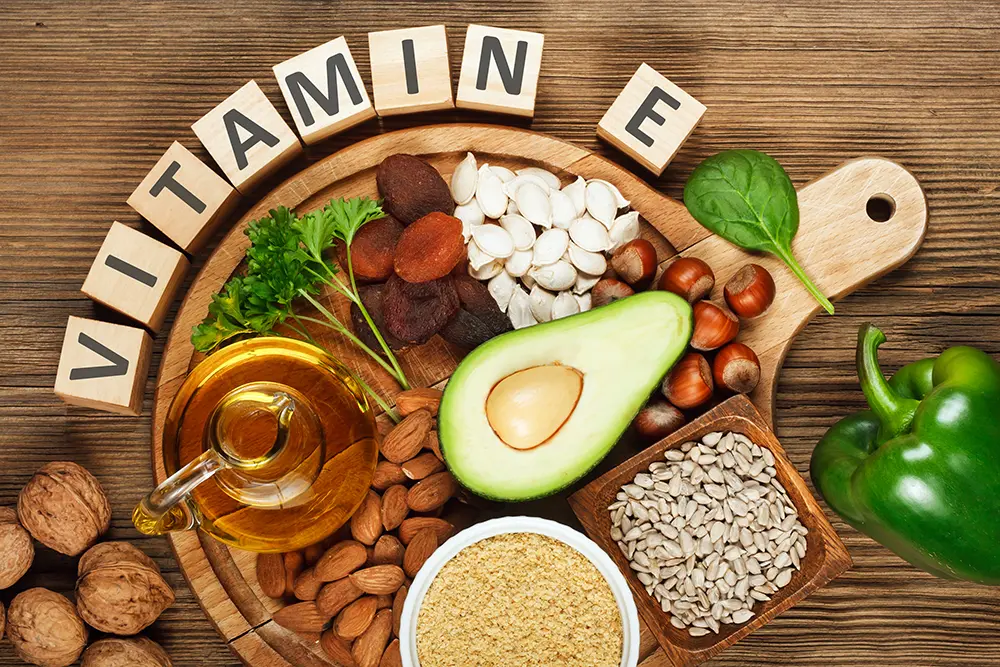
Vitamin E can reduce the levels of inflammation in your body which in turn can help control the chronic inflammation that occurs in periodontal disease.
Vitamin E rich foods: Sunflower seeds, almonds, peanuts, pumpkin, spinach and collard greens.
And there you have it, A list of top-rated food for teeth. Prioritizing dental friendly food not only supports your dental health but your general health and wellbeing. As with most things in life, balance is key. Here’s to healthy eating and to healthy teeth!



